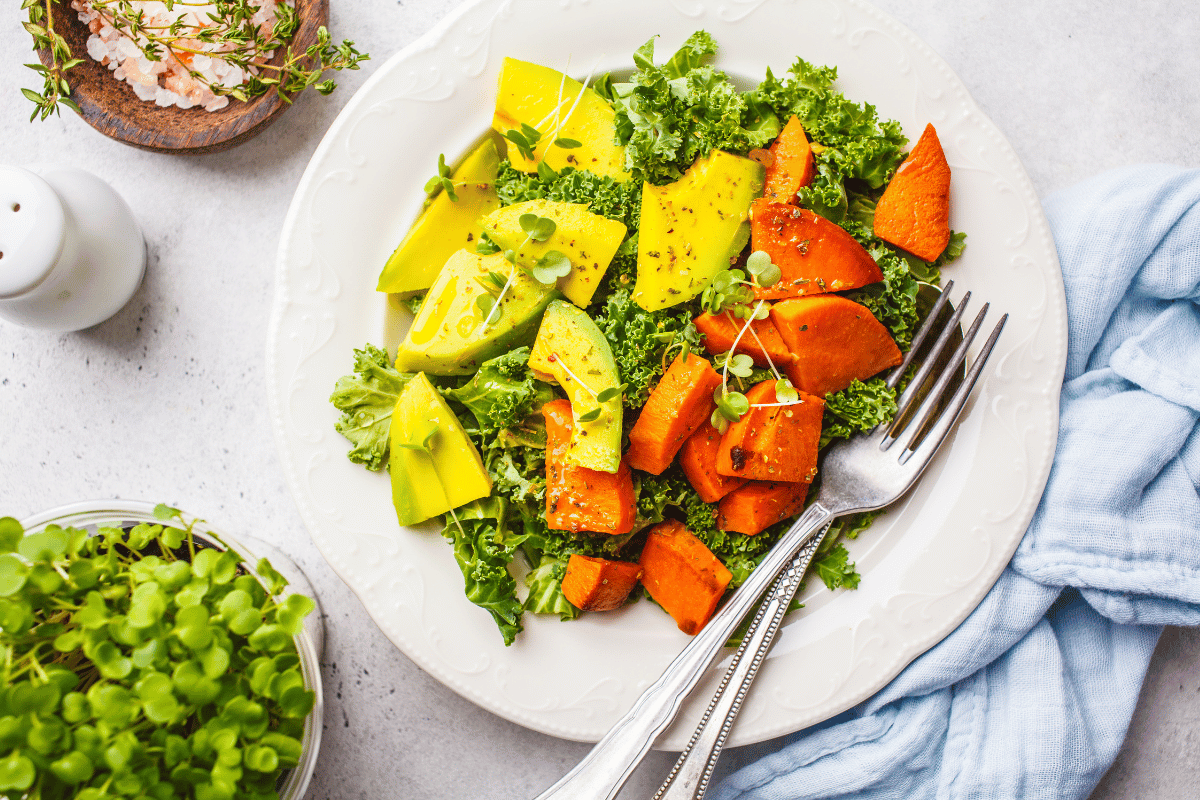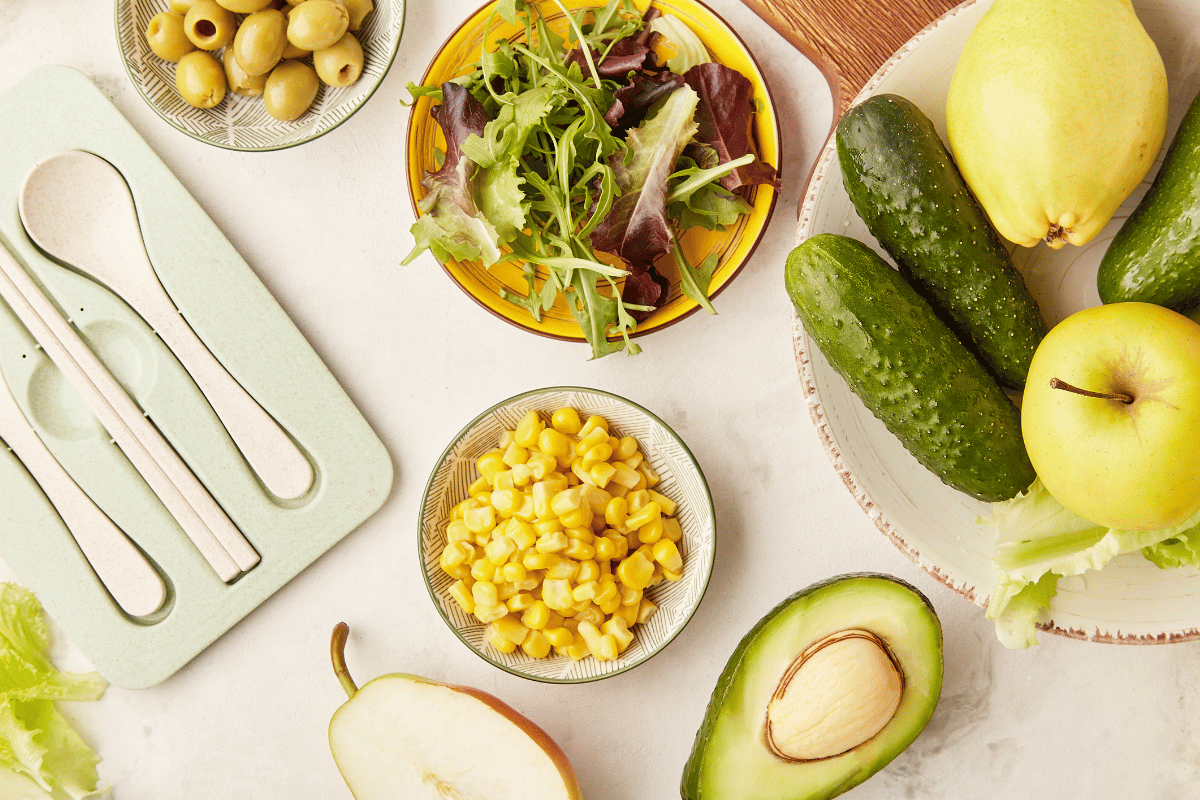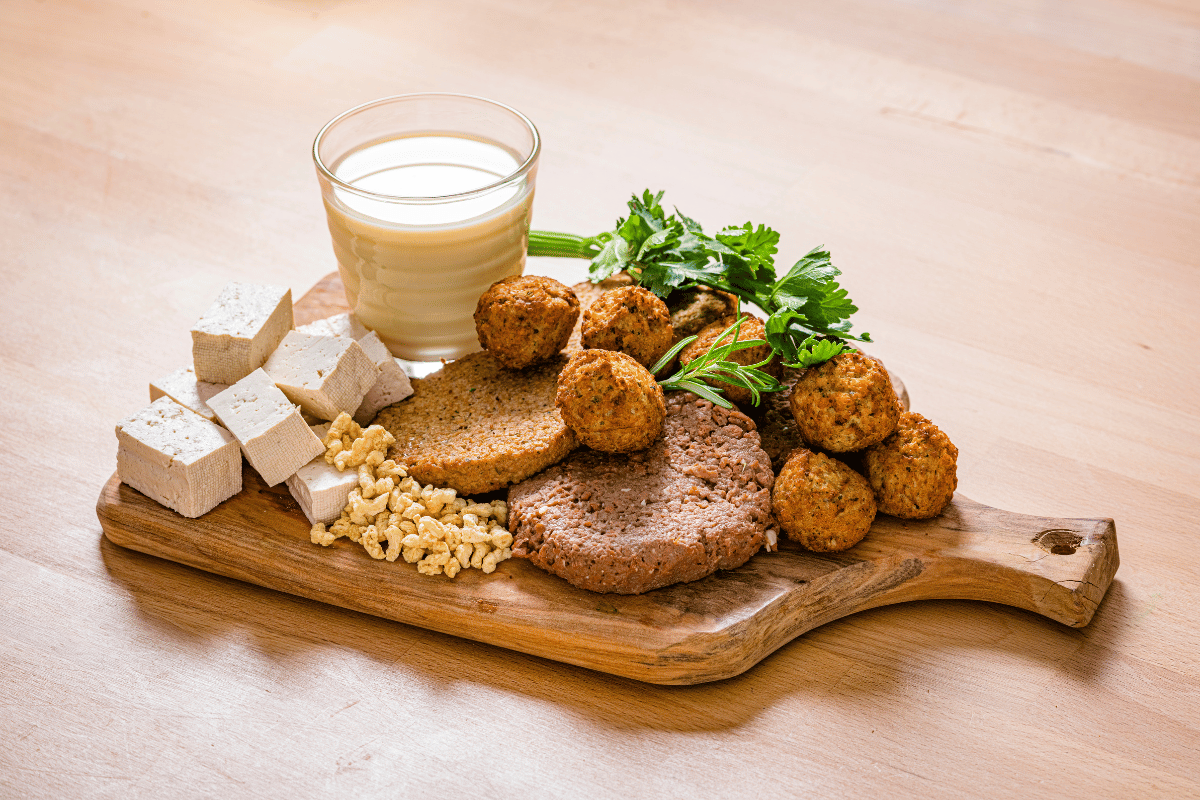Embarking on a journey to lose weight can be a challenging yet rewarding experience, especially when exploring the potential of a plant-based diet. As we enter 2024, the shift towards plant-based eating has gained significant traction, not just as a dietary choice but as a lifestyle for sustainable weight loss and overall health.
A plant-based diet primarily focuses on foods derived from plants. This includes not only fruits and vegetables but also nuts, seeds, oils, whole grains, legumes, and beans. It doesn’t mean that you are vegetarian or vegan and never eat meat or dairy. Rather, you are proportionately choosing more of your foods from plant sources.
The benefits of a plant-based diet are extensive. Nutrition expert Dr. Hannah Lewis states, “Plant-based diets are high in fiber, vitamins, and minerals, which help regulate body weight and maintain a healthy digestive system.” Additionally, these diets are typically lower in calories and saturated fats, making them effective for weight loss challenges.
The effectiveness of plant-based diets for weight loss can be attributed to several factors. Firstly, plant-based foods are generally lower in calories but higher in volume, which can lead to a natural reduction in calorie intake. Moreover, the high fiber content in these foods increases satiety, reducing the overall urge to overeat.
Dr. Lewis further explains, “The richness in nutrients and antioxidants in plant-based diets not only aids in weight loss but also improves metabolism and overall health.” This nutritional balance is crucial for anyone looking to overcome weight loss challenges effectively and sustainably.

Preparing for Your 60-Day Weight Loss Challenge
Embarking on a 60-day journey with a plant-based diet requires preparation and planning. Here’s how to set yourself up for success in your weight loss challenge.
Setting Realistic Goals and Expectations
The first step in your journey is to set realistic and achievable goals. Weight loss is a gradual process, and it’s important to have clear, measurable objectives. Health psychologist Dr. Laura Simmons advises, “Set specific, attainable goals that focus not just on weight loss, but also on the health benefits and the incorporation of new, healthy eating habits.”
Essential Foods in a Plant-Based Diet
A well-balanced plant-based diet includes a variety of foods to ensure you get all necessary nutrients. Key components include:
- Vegetables: A rich source of vitamins, minerals, and fiber. Include a variety of colors and types.
- Fruits: Great for satisfying natural sugar cravings while providing essential nutrients.
- Whole Grains: Foods like brown rice, quinoa, and oats provide energy and fiber.
- Legumes and Beans: Excellent sources of plant-based protein, fiber, and other nutrients.
- Nuts and Seeds: Rich in healthy fats, protein, and fiber.
Creating a Balanced and Nutritious Meal Plan
Creating a meal plan is critical for a successful weight loss challenge. This plan should include a variety of foods to ensure a balanced intake of carbohydrates, proteins, and fats. Nutritionist Sarah Gomez suggests, “Planning your meals can help avoid repetitive or monotonous diets, making the transition to plant-based eating more enjoyable and sustainable.”
Also, consider your daily routine and plan meals that are convenient and satisfying. Preparing meals in advance can help you stick to your diet and avoid impulsive eating decisions.
As we move into the next sections, we’ll provide a week-by-week guide to help you transition into and maintain a plant-based diet, ensuring you’re well-equipped to face the weight loss challenges ahead.

Week-by-Week Guide to the Plant-Based Diet
This guide is designed to help you navigate through the 60-day challenge, ensuring a smooth transition to plant-based eating and effective weight loss.
Week 1-2: Transitioning to Plant-Based Eating
In the first two weeks, focus on gradually incorporating more plant-based foods into your diet. Start by replacing one or two meals a day with plant-based options. Dietician Emily Peterson suggests, “Begin with familiar foods, like swapping meat with legumes in your favorite dishes, to ease the transition.”
Week 3-4: Overcoming Adaptation Challenges
As you move into weeks three and four, your body is adapting to the new diet. You might face challenges such as cravings or adjusting to new flavors and textures. “It’s normal to experience cravings as your body adjusts. Try to find plant-based alternatives that satisfy these cravings,” advises Peterson.
Week 5-6: Integrating Physical Activities
By weeks five and six, aim to integrate more physical activity into your routine. Exercise complements your plant-based diet and accelerates weight loss. Start with moderate activities like brisk walking or yoga, and gradually increase the intensity.
Week 7-8: Maximizing Weight Loss and Gaining Momentum
In the final phase of the challenge, focus on maximizing weight loss. By now, you should be comfortable with plant-based meals and regular physical activity. “This is the time to fine-tune your diet and exercise plan, based on what works best for your body,” says fitness coach Michael Thomas.
This period is crucial for solidifying the habits you’ve developed and setting the foundation for continued success beyond the 60-day mark.
Addressing Common Weight Loss Challenges
Adopting a plant-based diet for weight loss can come with its unique set of challenges. Here’s how to navigate and overcome them effectively.
Dealing with Cravings and Dietary Temptations
Cravings are a common hurdle in any weight loss journey. Nutritionist Lisa Hamilton advises, “To combat cravings, ensure your meals are balanced and satisfying. Incorporate a variety of flavors and textures in your plant-based diet to keep meals interesting and curb the desire for off-diet foods.” Additionally, having healthy plant-based snacks readily available can prevent succumbing to unhealthy temptations.
Overcoming Plateaus in Weight Loss
Hitting a plateau can be discouraging, but it’s a normal part of the weight loss process. “When progress stalls, it’s time to reassess your diet and exercise routine. Sometimes, a slight tweak is all that’s needed to restart weight loss,” states fitness expert James Lee. This might involve adjusting portion sizes, adding more protein-rich plant foods, or increasing physical activity.
Social and Lifestyle Adjustments
Adopting a plant-based diet can sometimes require social and lifestyle adjustments, especially in social gatherings or dining out. Dietitian Hamilton suggests, “Plan ahead when eating out and don’t hesitate to ask for plant-based options. Also, communicate your dietary preferences to friends and family to avoid misunderstandings.”
These adjustments are not just about food choices but also about embracing a lifestyle that supports your weight loss goals. It involves making informed choices and finding a supportive community that shares your dietary values.

Monitoring and Tracking Your Progress
Keeping track of your progress is a vital component of any weight loss journey, especially when transitioning to a plant-based diet. This monitoring can provide insights into what’s working and where adjustments might be needed.
Tools and Techniques for Measuring Weight Loss
There are several effective ways to track your weight loss progress:
- Weighing Yourself: Regularly using a scale can provide a general indication of your weight loss. However, it’s important not to obsess over daily fluctuations. Weekly check-ins are often more reliable.
- Body Measurements: Taking measurements of your waist, hips, and other body parts can show progress that might not be reflected on the scale.
- Fitness Trackers: Devices that track physical activity, heart rate, and even sleep patterns can be useful in monitoring your overall health and fitness progress.
- Food Diary: Keeping a diary of what you eat can help you stay accountable and notice patterns in your eating habits.
Understanding and Interpreting Body Changes
As you progress with your plant-based diet, your body will undergo changes. It’s essential to understand and interpret these changes correctly. Nutritionist Karen Blake states, “Weight loss isn’t just about shedding pounds. It’s also about gaining muscle, improving metabolism, and overall health. Sometimes the scale might not show much change, but your body is still evolving.”
In addition to physical changes, you might also notice improvements in energy levels, mood, and overall well-being. These are important indicators of progress and should be celebrated as part of your journey.
Maintaining Weight Loss and Healthy Habits Post Challenge
Successfully completing a 60-day weight loss challenge with a plant-based diet is an incredible achievement. The key now is to sustain these healthy habits long-term.
Transitioning to a Long-Term Plant-Based Lifestyle
Transitioning from a short-term challenge to a long-term lifestyle requires a shift in mindset. Dietitian Rachel Ford advises, “Think of the 60-day challenge as a kickstart. The goal post-challenge is to integrate these eating habits into your daily life seamlessly.” This means continuing to prioritize plant-based foods while allowing flexibility and balance.
Continuing Physical Activity and Balanced Eating
Maintaining weight loss is not just about continuing with a plant-based diet; it’s also about staying active. Keep incorporating regular physical activity into your routine, whether it’s through structured exercise, sports, or simply more active living.
Balanced eating is key. Ensure your diet remains varied and includes all necessary nutrients. “Balance is crucial. A plant-based diet should be diverse to meet all your nutritional needs,” states Ford.
Emotional and Psychological Support for Sustained Weight Loss
Emotional and psychological factors play a significant role in maintaining weight loss. Joining support groups, either online or in your community, can provide motivation and encouragement. Additionally, consider seeking guidance from a nutritionist or counselor for personalized advice and support.
FAQ Section: Optimizing Your Low Carb Diet Journey
As you embark on or continue your low carb diet for weight loss, you might have questions. This FAQ section aims to address some of the most common queries to help you optimize your diet plan.
1. Tailoring the Low Carb Diet to Individual Needs
Q: How can I customize my low carb diet for personal preferences and health conditions?
A: Personalizing your low carb diet involves considering your dietary preferences, lifestyle, and any specific health conditions. Start by identifying foods that you enjoy and that fit within a low carb framework. For health conditions, such as diabetes or heart disease, consult with a healthcare professional to tailor your diet appropriately. Consider factors like food allergies, intolerances, and your activity level to create a plan that suits your individual needs.
2. Overcoming Common Low Carb Diet Challenges
Q: What are some solutions for dealing with cravings, dining out, and social situations?
A: Managing cravings on a low carb diet can involve finding healthy substitutes for your favorite high-carb foods. For dining out, choose restaurants with low carb options, and don’t hesitate to ask for modifications. In social situations, planning ahead by eating a low carb meal beforehand or bringing your own dishes can help you stay on track.
3. The Role of Exercise in a Low Carb Diet
Q: What are the best exercises to complement a low carb diet for weight loss?
A: Combining a low carb diet with regular exercise can enhance weight loss and overall health. Focus on a mix of cardiovascular exercises, like walking, running, or cycling, and strength training to boost metabolism and muscle tone. Activities like yoga and pilates can also be beneficial for flexibility and stress reduction.
4. Long-Term Sustainability of a Low Carb Diet
Q: How can I maintain a low carb lifestyle in a balanced and healthy way?
A: Long-term maintenance of a low carb diet involves finding a balance that works for you. This means integrating enough variety in your diet to ensure nutritional adequacy and prevent boredom. Regularly reassess and adjust your diet as your lifestyle, health status, and preferences change. Also, consider incorporating mindful eating practices to maintain a healthy relationship with food.
Related Posts :
- En John Goodman Weight Loss Transforming Health Through Diet And Exercise 3tj4
- En Simpli Acv Keto Gummies For The Health Conscious Crowd Cwg5
- En Apple Cider Vinegar Pills For Weight Loss Can They Help Postpartum Women Regain Their W4sq
- John Goodman Weight Loss Cniw
- En John Goodman Weight Loss 5 Key Strategies That Worked 125h